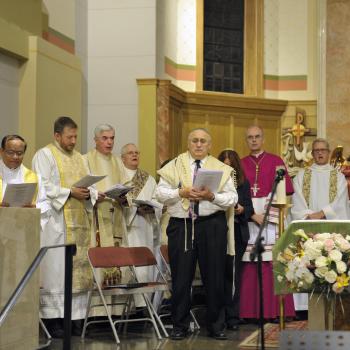Patricia Wojnar left a 32-year career in interior design to pursue a degree that wasn’t in demand: a master’s in bereavement studies.
Having seen four family members die early, she wanted to understand how to adapt.
As it turned out, the degree perfectly prepared her to enter one of Ireland’s emerging professions.
Wojnar is now a registered civil celebrant, presiding over funerals and weddings for people who refuse to associate with Ireland’s scandal-tarred Roman Catholic Church. She’s not alone; many newly minted civil celebrants are starting their own businesses as part of Ireland’s “post-Catholic” economy.
Although many observers have noted the impact of secularization and child abuse scandals on church membership and finances, only now are the Irish seeing the cultural and socioeconomic reverberations. These include a class of people willing to observe life’s most significant milestones outside the church.
“People only get one opportunity to get a funeral right,” Wojnar said. “I help them prepare a service which honors the bereaved without being constrained by the convention of religion.”
Irish funeral directors estimate that 10 percent of the nearly 30,000 funerals conducted annually are nonreligious. Government data show that about 30 percent of the 21,000 weddings annually are outside any church, up from 5 percent two decades ago.
















